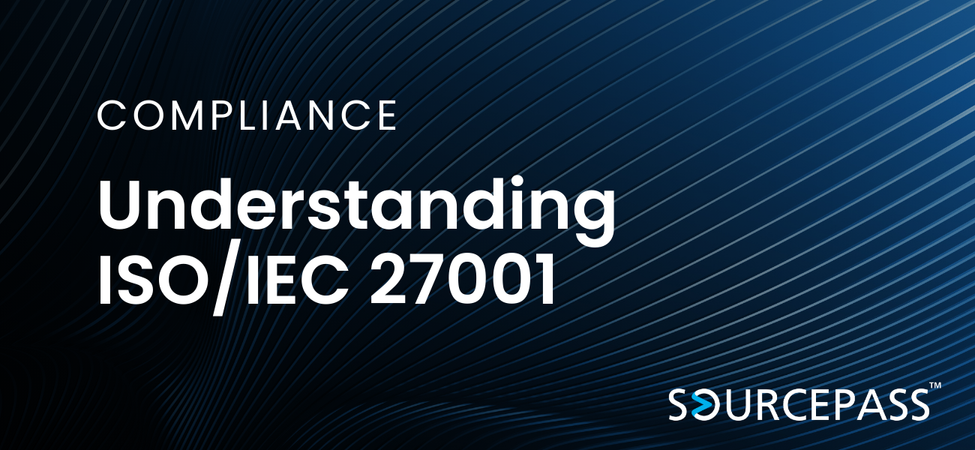Understanding ISO/IEC 27001
Oct 14, 2024 Julia Nolan Blog Cybersecurity Compliance Regulations 2 min read



ISO/IEC 27001 is the world’s best-known standard for information security management systems (ISMS).
It provides a comprehensive framework for establishing, implementing, maintaining, and continually improving an ISMS. In this blog, we explore what ISO/IEC 27001 is, why it’s important, and how it benefits organizations.
What is ISO/IEC 27001?
ISO/IEC 27001 is an international standard that defines the requirements an ISMS must meet. It offers guidance for companies of any size and from all sectors to manage risks related to the security of data they own or handle.
Conformity with ISO/IEC 27001 means that an organization has implemented a system to manage these risks, adhering to best practices and principles outlined in the standard.
Why is ISO/IEC 27001 Important?
Cyber criminals never rest, and new threats are constantly emerging. Managing cyber risks can be overwhelming, but ISO/IEC 27001 helps organizations become risk-aware and proactively identify and address weaknesses.
This standard promotes a holistic approach to information security, encompassing people, policies, and technology. An ISMS implemented according to ISO/IEC 27001 is a powerful tool for risk management, cyber resilience, and operational excellence.
Key Benefits of ISO/IEC 27001
- Resilience to Cyber-Attacks: By implementing robust security measures, organizations can better withstand cyber attacks.
- Preparedness for New Threats: The standard helps organizations stay ahead of emerging threats by continuously improving their security posture.
- Data Integrity, Confidentiality, and Availability: Ensuring that data is accurate, accessible only to authorized individuals, and available when needed.
The CIA Triad
ISO/IEC 27001 is based on three core principles, often referred to as the CIA Triad:
- Confidentiality: Ensuring that only authorized individuals can access the information held by the organization.
- Integrity: Ensuring that data used by the organization is reliably stored and not erased or damaged.
- Availability: Ensuring that information is accessible whenever necessary to meet business needs and customer expectations.
Mandatory Clauses of ISO/IEC 27001
To achieve ISO/IEC 27001 certification, organizations must comply with several mandatory clauses:
- Context of the Organization: Understanding the internal and external issues that can affect the ISMS.
- Leadership: Top management must demonstrate leadership and commitment to the ISMS.
- Planning: Organizations must plan actions to address risks and opportunities.
- Support: Providing the necessary resources, training, and awareness to support the ISMS.
- Operation: Implementing the processes needed to meet ISMS requirements.
- Performance Evaluation: Monitoring, measuring, analyzing, and evaluating the ISMS.
- Improvement: Continually improving the ISMS to enhance performance.
Continuous Improvement
ISO/IEC 27001 compliance is not a one-time achievement but an ongoing process. Organizations must continuously monitor and improve their controls to address emerging risks and changes in the business environment. This continuous improvement ensures that the ISMS remains effective and relevant.
Learn More and Get Compliant with Sourcepass Today
Sourcepass provides Security Advisory Services that can help provide support and guidance for your compliance needs.
Speak to one of our IT specialists to learn how Sourcepass can help with regulatory adherence.
